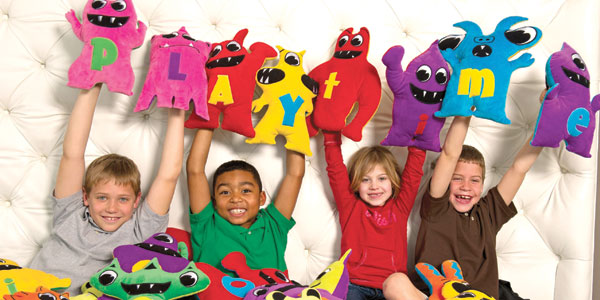Todos sabemos la importancia de una buena nutrición y suficiente horas de descanso en un niño. Desafortunadamente, pocos padres saben de la importancia del juego en el desarrollo de un bebé. Jugar ayuda al niño a desarrollar ideas y sentimientos. El juego es el desarrollo del lenguaje que comienza con un chistoso juego de Peek-A-Boo y continúa con simples juegos de mesas. Hay muchas maneras de hacer que este tiempo se convierta en un momento educativo y que estimule las habilidades del niño.
Las habilidades sociales pueden ser desarrolladas desde muy chiquitos al jugar simple juegos que le enseñen al infante tomar turnos y compartir. La habilidad del trabajo grupal también es recomendable de introducir a una breve edad para que el niño se acostumbre a ayudar y pedir ayuda. Esta habilidad tan vital puede ser estimulada al formar rompecabezas con el niño.
Nunca es demasiado temprano para empezar a enseñar a un niño sobre emociones y sentimientos. La creatividad, como dibujar y pintar, es una muy buena manera de alimentar la autoestima. Los padres deben de felicitar a los niños por su trabajo y mostrar sus obras. Jugar con masa, arena y agua calman al niño y esto le da al infante una posibilidad para expresar sus sentimientos y frustraciones. Otra manera de ayudar con los sentimientos es actuando. Generalmente los niños están más dispuesto a expresar sus sentimientos actuando.
Estas son simplemente algunas de las tantas técnicas para asegurarnos que nuestras actividades impacten de una forma positiva la vida de nuestros niños. Es muy importante visitar las librerías públicas locales donde ofrecen libros, juegos y un sinfín de recursos.
Play Time
An Important Ingredient in Child Growth and Development
By Carey Juez-Perez
We all know how important good nutrition and enough sleep are for a child. Unfortunately, many parents do not know that play is also an important part of child development. Play time helps children sort out their ideas and feelings. It is a child’s language, developing from smiling while playing peek-a-boo as a baby to playing with puzzles as a toddler. There are many ways to make playtime more enjoyable and educational while stimulating your child’s brain and overall skills.
Socials skills can be encouraged from a very young age by playing simple board games, which initiate taking turns and sharing. The ability of team work can be developed by putting puzzles together to encourage helping others and to learn how to ask for help when needed.
It is never too early to start teaching your child about emotions and feelings. Creativity, such as drawing and painting, is a great way to increase self-esteem. Make sure you praise your child’s artwork and hang the master piece on the fridge. If your child is having a hard day and acting up, play dough, sand play and water play are calming activities which offer opportunities for your child to express and release his/her feelings. Another way to make sense of their feelings and learn to cope is through make believe play. Often times, children will reenact both positive and negative feelings through make-believe play.
These are just a few ways to make sure play time has the greatest positive impact on your child. There are many resources in our community that can help us with raising our child. Please make sure you visit your local library for books, toys and ideas.











